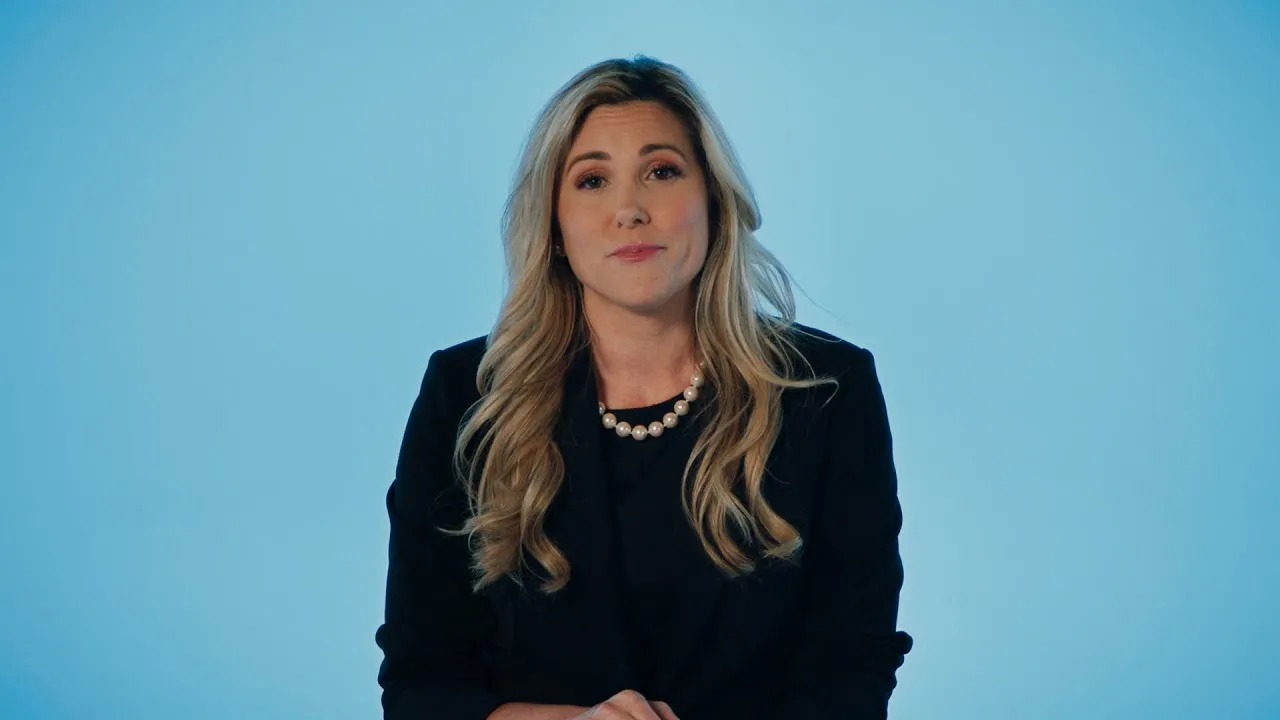
We know car accidents.
Car crashes can derail your life. We've helped thousands of people recover—physically, financially, and emotionally—after an accident.
Start Your ClaimThe attorney shown above may not be licensed in your state. To find an attorney licensed in your area, please visit our attorney page.

The attorney shown above may not be licensed in your state. To find an attorney licensed in your area, please visit our attorney page.
Meet Our Car Accident Lawyers
From investigation to resolution, our auto accident attorneys handle every detail of your case. You focus on healing, and we’ll take it from here.
The attorneys shown in these photos may not be licensed in your state. To find an attorney licensed in your area, please visit our attorney page.
The Right Car Accident Lawyer Makes All The Difference
Dedicated Support in Stressful Times
Fighting for the Compensation You Deserve
35 Years of Experience at Your Back
A Reputation for Big Results
Support You Can Count On
It’s Free to Get Started
The Right Firm for Big Wins
We fight to get our clients more—even if it means going to court. Big corporations know we’re ready to do what it takes to get you what’s fair.
Results may vary depending on your particular facts and legal circumstances. The attorneys shown in these photos may not be licensed in your state. To find an attorney licensed in your area, please visit our attorney page.
Results may vary depending on your particular facts and legal circumstances. The attorneys shown in these photos may not be licensed in your state. To find an attorney licensed in your area, please visit our attorney page.
Ways We Can Help
Car Crash
In Their Words
Based on select nationwide reviews.
Injury or damages
Someone else is partially or entirely at fault.
Enough insurance coverage
What's a car accident case worth?
Watch Morgan & Morgan attorneys explain how case value is calculated.

The attorneys shown in this video may not be licensed in your state. To find an attorney licensed in your area, please visit our attorney page.
8 Things To Do After A Car Accident
From staying safe at the scene to securing the compensation you deserve, find out what to do after a car accident.
Fighting For the People
Backed by America’s Largest Injury Law Firm.
$26 Million
Largest auto verdict this year
20,000+
Clients helped with
auto claims1,000+
Attorneys across
the country1
Click may change your life

The attorney featured above is licensed in Florida. For a full list of attorneys in your state please visit our attorney page.
Results may vary depending on your particular facts and legal circumstances.
Common Types of Car Accidents
Head-On Collisions
Multi-Vehicle Accidents
Car Accident Injury Types
Broken Bones
Head Injuries
Whiplash
Organ Damage
Soft Tissue Injuries
Herniated Discs
Learn More
Injured and not sure what to do next?
We'll guide you through everything you need to know.
Get answers to commonly asked questions about our legal services and learn how we may assist you with your case.
How do I know if I have a car accident claim?
Every car accident case is different. But in all personal injury claims, there are a few elements that we look at to see if you might have a case. We check to see if:
- There were damages. Personal injury lawsuits are filed to recover “damages.” These include costs like medical expenses, lost wages, and pain and suffering. An injury must have significant associated costs to qualify for a lawsuit, which vary by state.
- Someone else was at fault. To get compensation from someone else’s insurance company, they must have acted negligently in a way that caused or contributed to your injuries.
- There’s enough insurance coverage. Personal injury lawsuits are usually filed against insurance companies, not individuals. Those responsible must have enough insurance coverage to cover the injured person’s medical expenses or to fully compensate them for their injuries.
Not sure if you have a case? Get in touch. We're here to help.
What should I do immediately after a car accident?
Immediately after a car accident, your primary focus should be on safety, your well-being, and securing the necessary help.
First, assess yourself and any passengers for injuries. If anyone is hurt, call 911 immediately to get medical assistance. If possible, move your vehicle to a safe location out of traffic. If the car cannot be moved, turn on your hazard lights to warn other drivers.
Next, call the police. Even if the accident seems minor, it's crucial to have a police report. The responding officer will document the scene, which can be vital for your insurance claim or any legal action.
Collect information from the other driver, including their name, contact details, driver’s license number, license plate number, and insurance information. Be polite, but avoid discussing fault or making statements that could be used against you later.
Take photos or videos of the accident scene, including vehicle damage, skid marks, traffic signs, and any other relevant details. These can serve as critical evidence. If there are any witnesses, get their contact information and ask if they would be willing to provide a statement.
Even if you feel fine, it's wise to get checked out by a medical professional. Some injuries may not be immediately apparent but can become serious if untreated. A medical visit also creates evidence that you took your accident seriously.
Next, report the accident to your insurance provider as soon as possible. Stick to the facts and avoid admitting fault.
Finally, contact a car accident lawyer at Morgan & Morgan, especially if you’ve sustained injuries or the damage is significant. One of our auto injury lawyers can help protect your rights and guide you through the claims process.
How long after a car accident can I file a claim?
The time frame within which you must file a car accident injury claim is dictated by the statute of limitations, which varies by state. Generally, the statute of limitations ranges from one to four years from the date of the accident. This means you have that amount of time from the date of the accident to file a lawsuit. If you miss this deadline, you may lose your right to seek compensation.
In some cases, injuries or damages may not be immediately apparent. The discovery rule allows the statute of limitations to begin when the injury is discovered or reasonably should have been discovered. This is particularly relevant in cases where internal injuries or long-term health issues arise after the accident.
It's especially important to visit a medical professional as soon as possible after the accident. Even if you don't feel hurt, a complete workup will document the state of your health and potentially discover injuries you may not feel yet. In some states, medical paperwork filed shortly after the incident is a requirement for obtaining certain benefits.
Filing a claim sooner rather than later is key to building a strong case. Evidence can deteriorate, memories can fade, and witnesses may become harder to locate over time. By acting promptly, you improve your chances of securing vital evidence.
Given the complexities of statutes of limitations and the potential for exceptions, it’s wise to consult a car accident lawyer as soon as possible after your accident. A lawyer can help ensure that your claim is filed within the appropriate time frame and advise you on the best course of action.
How long does it take to resolve a car accident lawsuit?
The time it takes to resolve a car accident lawsuit can vary widely depending on several factors, including the complexity of the case, the severity of injuries, and the willingness of the parties to settle.
After the accident, your lawyer will begin investigating the case, gathering evidence, and calculating damages. Once this is complete, they will file a claim with the insurance company or a lawsuit in court. This initial phase can take a few weeks to several months, depending on the complexity of the case.
Many car accident cases are resolved through settlement negotiations without going to court. Settlement discussions can begin shortly after the claim is filed and may take several months to resolve. The timeline depends on the willingness of both parties to reach an agreement and the complexity of the damages involved.
Why should I hire Morgan & Morgan?
Choosing the right legal team can make all the difference in the outcome of your case. With over 35 years of experience handling car accident cases, our attorneys are well-versed in state and federal traffic laws, as well as insurance regulations. We know what it takes to build a strong case and secure the compensation you deserve.
When you choose Morgan & Morgan, you’re not just hiring a lawyer; you’re gaining access to an entire army of legal professionals dedicated to your case. This includes paralegals, investigators, and medical experts who work together to build the strongest possible case on your behalf.
And the best part is you don’t pay a dime unless we win your case. We understand that after a car accident, the last thing you need is additional financial stress. That’s why we operate on a contingency fee basis. That’s right—the Fee Is Free™, you only pay a share of your compensation if we win.
As the nation’s largest personal injury law firm, when you work with Morgan & Morgan, you send a clear message that you mean business. Morgan & Morgan has recovered over $25 billion for our clients, and our reputation for winning is known across the country.
You don’t have to face this challenging time alone. At Morgan & Morgan, we are committed to helping car accident victims like you navigate the complexities of their claims and achieve the justice and compensation they deserve. Remember, our services are free unless we win your case, and we’re here to fight for you every step of the way.
If you’ve been injured in a car accident, don’t delay. Fill out our free case evaluation form today to find out how Morgan & Morgan can help you take the first step toward recovery and justice.
How much does it cost to hire Morgan & Morgan?
A "no win, no fee" agreement, also known as a contingency fee agreement, is a payment arrangement that allows clients to hire a no win, no fee lawyer without paying any upfront fees.
When you hire a lawyer under a no win, no fee agreement, you are not required to pay any money upfront. This makes legal representation accessible to anyone, regardless of their financial situation.
You only pay your lawyer if they win your case, either through a settlement or a court judgment. If your lawyer is unsuccessful, you owe nothing for their services.
If your lawyer wins the case, their fee is typically a percentage of the compensation you receive. The specific percentage may vary depending on the complexity of the case and the amount of work involved.
The no win, no fee arrangement aligns the lawyer's interests with yours, as they only get paid if you win. This provides a strong incentive for your lawyer to work diligently on your behalf and to seek the maximum possible compensation for your case.
At Morgan & Morgan, we believe justice should be accessible to all, so we operate on this same contingency fee system and have made it our motto that the Fee Is Free™, and you only pay if we get you compensated.
What sort of compensation can I recover for a car accident claim?
If you’ve been injured in a car accident, you may be entitled to various types of compensation, depending on the specifics of your case.
- Medical Expenses: This includes compensation for all past, present, and future medical costs related to your injury. It covers hospital bills, doctor’s visits, surgeries, medication, physical therapy, and any necessary medical equipment. If your injury requires ongoing treatment, your compensation should account for these future expenses as well.
- Lost Wages: If your injury has caused you to miss work, you can seek compensation for lost wages. This includes not only the income you’ve already lost but also any future income you may lose if your injury affects your ability to work. In cases of permanent disability, this may include compensation for loss of earning capacity.
- Pain and Suffering: Car accident injuries can cause significant physical pain and emotional distress. Compensation for pain and suffering is intended to address the non-economic impact of your injuries, such as chronic pain, anxiety, depression, and the overall decrease in your quality of life.
- Emotional Distress: Severe accidents can lead to emotional trauma, including PTSD, anxiety, and depression. Compensation for emotional distress aims to provide financial relief for the psychological impact of the accident.
- Disability and Disfigurement: If the accident resulted in a permanent disability or disfigurement, such as a loss of limb or scarring, you could receive additional compensation to address the lifelong impact of these injuries.
- Loss of Consortium: If your injuries have affected your relationship with your spouse or family, you may be entitled to compensation for loss of consortium. This can cover the loss of companionship, affection, and support resulting from your injury.
- Punitive Damages: In some cases, where the at-fault party’s conduct was particularly reckless or malicious, you may be awarded punitive damages. These are intended to punish the wrongdoer and deter similar behavior in the future.
- Property Damage: You can also seek compensation for any damage to your vehicle or other personal property. This includes repair or replacement costs, as well as any rental car expenses while your vehicle is being repaired.
Each car accident case is unique, and the types of compensation you can receive will depend on the details of your injury, the impact on your life, and the circumstances surrounding the accident. A Morgan & Morgan lawyer can help you determine the full extent of your damages and fight for the compensation you deserve.
Do I need to hire a lawyer for a minor car accident?
While it may seem unnecessary to hire a lawyer for a minor car accident, doing so can be crucial to ensuring that your rights are protected and that you receive fair compensation.
Even in minor accidents, insurance companies may try to minimize payouts. They might offer a quick settlement that doesn’t fully cover your expenses or losses. A lawyer can help you evaluate the offer and negotiate for a fair settlement that includes all of your damages, even those that may not be immediately apparent.
Also, not all injuries are immediately noticeable after an accident. Some, like whiplash, concussions, or soft tissue injuries, may take days or weeks to manifest. Without legal representation, you might settle too early, before the full extent of your injuries is known. A lawyer can ensure that all potential future medical costs are considered.
At Morgan & Morgan, our reputation and team of trial-ready lawyers can send a clear message to the other side that low-ball settlements won’t do and that we intend to fight for the maximum compensation you deserve.
While you might think you can handle a minor accident on your own, having an auto accident lawyer on your side can help you avoid potential pitfalls and ensure you receive the compensation you deserve.
Do I have to pay for a consultation with a car accident lawyer?
No. Consultations at Morgan & Morgan are completely free. We believe everyone deserves access to legal advice, regardless of their financial situation.
Hiring one of our car crash lawyers is easy, and you can get started in minutes with a free case evaluation on our site or by phone.
Who will be on my case team?
When you hire Morgan & Morgan, you don’t just hire a lawyer, you hire the largest personal injury law firm in the country with an army of over 1,000 lawyers and offices in all 50 states and Washington, D.C.
Your case will be handled by a dedicated team of professionals, including personal injury lawyers, paralegals, and support staff. You will be assigned a care team that includes a primary attorney who will oversee your case and ensure you receive personalized attention throughout the process.
When do I meet with my car accident lawyer?
After your initial consultation, your care team will schedule regular meetings to discuss your case, provide updates, and prepare you for any upcoming proceedings. We are committed to maintaining open lines of communication and keeping you informed every step of the way.
These meetings can be handled in person, virtually, and by phone, depending on your case’s requirements and your ability to do so.
What is the average settlement for a car accident claim?
The average settlement for a car accident claim can vary widely depending on several factors, including the severity of injuries, the extent of property damage, and the circumstances surrounding the accident.
The most significant factor in determining a settlement amount is the severity of your injuries. Cases involving minor injuries, such as whiplash or bruising, may result in smaller settlements, while severe injuries like spinal cord damage, traumatic brain injuries, or multiple fractures can lead to much more substantial settlements.
Your medical bills play a crucial role in calculating your settlement. This includes costs for emergency room visits, surgeries, hospital stays, physical therapy, and any ongoing or future medical care. The higher your medical expenses, the larger your settlement is likely to be.
How do I prove fault in a car accident case?
Proving fault in a car accident case can help you secure compensation for your injuries and damages. The process involves gathering and presenting evidence that demonstrates the other party’s negligence or wrongdoing.
After an accident, a police officer will typically investigate the scene and file a report. This report often includes the officer’s observations, statements from the drivers and witnesses, and sometimes the officer’s opinion on who was at fault. While not definitive, a police report can be a strong piece of evidence in establishing fault.
Witnesses who saw the accident happen can provide valuable accounts that support your version of events. Their testimonies can help corroborate your claims and strengthen your case.
Photographic evidence from the accident scene can be crucial. Pictures of vehicle damage, skid marks, traffic signs, road conditions, and other relevant details can help recreate the sequence of events and demonstrate how the accident occurred.
If the other driver violated traffic laws (e.g., running a red light, speeding, failing to yield), this can be a clear indicator of fault. Traffic citations issued to the other driver at the scene can also serve as evidence.
In more complex cases, Morgan & Morgan’s accident reconstruction experts may be called upon to analyze the evidence and provide an opinion on how the accident occurred and who was at fault. Their expertise can help clarify the events leading up to the collision.
If the other driver admits fault at the scene or afterward, their admission can be used as evidence. However, it’s important to be cautious with your own statements, as anything you say could also be used against you.
Your account of the accident, including details about what you saw, heard, and felt, is also important. Consistent and clear testimony can help establish the facts of the case.
Proving fault requires a comprehensive approach to gathering and presenting evidence. A Morgan & Morgan lawyer can assist you in building a strong case, ensuring that all relevant evidence is collected and effectively used to demonstrate the other party’s liability.
Can I still get compensation if I was partially at fault?
Most state laws allow you to recover compensation even if you were partially at fault for a car accident. This is due to the comparative negligence rule, which reduces your compensation based on your percentage of fault.
In a car accident lawsuit, the court or insurance company will determine the percentage of fault attributed to each party involved in the accident. If you are found to be partially at fault, your compensation will be reduced by your percentage of fault.
For example, if you are awarded $100,000 in damages but are found to be 20% at fault for the accident, your compensation would be reduced by 20%, leaving you with $80,000.
Insurance companies often try to minimize their payouts by arguing that you were partially or primarily at fault for the accident. It’s important to have an experienced attorney on your side to challenge these claims and negotiate a fair settlement.
To maximize your compensation, gather strong evidence that supports your version of events. This includes police reports, witness statements, photos of the accident scene, and any available video footage. An attorney at Morgan & Morgan can help you collect and present this evidence effectively.
If you were partially at fault, it’s important to act quickly and consult with an attorney who can guide you through the legal process. An experienced car accident attorney will help ensure that your fault is accurately assessed and that you receive the compensation you deserve, even if you bear some responsibility for the accident.
What if the other driver is uninsured or underinsured?
If you’re involved in a car accident with a driver who is uninsured or underinsured, it can complicate the process of recovering compensation for your damages. However, there are several avenues you can pursue to ensure that you are not left bearing the financial burden.
If you have uninsured/underinsured motorist (UM/UIM) coverage as part of your auto insurance policy, this coverage can step in to cover your damages when the at-fault driver lacks sufficient insurance. UM coverage pays for medical expenses, lost wages, and other damages you would have otherwise sought from the other driver’s insurance. UIM coverage applies when the at-fault driver’s insurance is insufficient to cover the full extent of your losses.
In some states, PIP coverage is mandatory or available as an option. PIP can cover your medical expenses and lost wages regardless of who was at fault in the accident. This can be particularly helpful if the other driver is uninsured or underinsured.
If the at-fault driver is uninsured, you may have the option to file a lawsuit against them personally to recover damages. However, this route can be challenging if the driver has limited financial resources, as it may be difficult to collect the judgment even if you win the case.
Navigating a claim involving an uninsured or underinsured driver can be complex. A Morgan & Morgan car accident lawyer can help you explore all available options, negotiate with your insurance company, and determine the best strategy for securing the compensation you need.
How do I handle a car accident involving a rideshare or delivery driver?
Car accidents involving rideshare (such as Uber or Lyft) or delivery drivers (such as those working for DoorDash or Amazon) present unique legal challenges.
As with any car accident, your first priority should be your safety and health. Check for injuries and call 911 if necessary. If you are injured, seek medical attention immediately.
Collect as much information as possible at the scene, including the driver’s name, contact information, and details about their vehicle. If they were working for a rideshare or delivery service at the time, get the name of the company and any relevant details about their employment status. Also, gather contact information from any witnesses.
Take photos or videos of the accident scene, vehicle damage, and any visible injuries. This evidence can be crucial when filing a claim with the appropriate insurance company.
Notify the rideshare or delivery company about the accident. Both Uber and Lyft, for example, have protocols for handling accidents involving their drivers. The company may have its own insurance policy that covers the driver while they are on the job.
File a police report, as this will be an important document for your insurance claim or lawsuit. Be sure to mention if the driver was working for a rideshare or delivery service at the time of the accident.
Inform your insurance company about the accident. Depending on the situation, your insurance may be involved in covering some of the damages.
Accidents involving rideshare or delivery drivers can involve multiple insurance policies, including the driver’s personal insurance, the company’s insurance, and potentially your own insurance. An experienced attorney at Morgan & Morgan can help you navigate this complex landscape, determine which policies apply, and pursue the compensation you deserve.
Rideshare and delivery companies often have large insurance policies to cover accidents involving their drivers, but getting the compensation you’re entitled to can be challenging. An attorney can advocate on your behalf, negotiate with the insurance companies, and, if necessary, take your case to court to ensure your rights are protected.
What should I do if the other driver leaves the scene (hit and run)?
Being involved in a hit-and-run accident can be a terrifying experience. If the other driver leaves the scene, it’s important to stay calm and take specific steps to protect your rights and improve your chances of recovering compensation.
First, check yourself and any passengers for injuries. If anyone is injured, call 911 immediately for medical assistance. Your safety and health should always be the top priority.
If possible, try to remember and document as much information about the fleeing vehicle as you can, such as the make, model, color, and license plate number. Also, note the direction in which the vehicle fled.
Seek out witnesses who may have seen the accident. Their statements could be crucial in identifying the hit-and-run driver and supporting your claim. Ask for their contact information, as they may be able to provide a statement to the police or your attorney.
Contact the police as soon as possible to report the hit-and-run. Provide them with all the details you gathered. A police report will be essential for your insurance claim and any potential legal action.
Even if you don’t feel injured, it’s important to see a doctor as soon as possible. Some injuries may not be immediately apparent but could have long-term effects. Medical documentation will also be vital for your claim.
Next, report the accident to your insurance company promptly. Depending on your policy, you may have coverage options such as uninsured motorist coverage, which can help pay for your damages when the at-fault driver is unknown.
Hit-and-run cases can be complex, especially when the at-fault driver cannot be identified. An experienced car accident attorney at Morgan & Morgan can help you navigate the legal process, work with your insurance company, and explore all possible avenues for compensation.
Even if the hit-and-run driver is never found, you may still be entitled to compensation through your own insurance policy or other means. An attorney can evaluate your case, explain your options, and help you recover the damages you deserve.
What are the common causes of car accidents?
Every time we hit the road, we embark on a journey that demands caution, responsibility, and awareness. Despite advancements in vehicle safety, car crashes remain an unfortunate reality, often resulting from a variety of factors. At Morgan & Morgan, we believe knowledge is an important tool for prevention.
Distracted Driving: In an era dominated by technology, distracted driving has become a pervasive issue. Whether texting, talking on the phone, or engaging with in-car entertainment systems, diverted attention can lead to devastating consequences.
Speeding: Exceeding speed limits poses a significant risk on the road. Speeding reduces reaction time and increases the severity of accidents, making it a leading contributor to collisions.
Impaired Driving: Driving under the influence of alcohol or drugs remains a major cause of accidents. Impaired judgment and coordination significantly elevate the likelihood of crashes with severe outcomes.
Reckless Driving: Aggressive and reckless driving behaviors, such as tailgating, weaving between lanes, and disregarding traffic signals, create hazardous conditions and contribute to many accidents.
Weather Conditions: Adverse weather, from rain and snow to fog and ice, amplifies the challenges of driving. Reduced visibility and slippery roads make accidents more probable during inclement weather.
Running Red Lights and Stop Signs: Failing to obey traffic signals and signs jeopardizes the safety of everyone on the road. Intersection-related collisions are often the result of drivers disregarding these crucial directives.
Driver Fatigue: Tired and drowsy driving impairs cognitive functions and reaction times. Fatigue-related accidents are more prevalent than one might think, especially during long-distance travel.
Sometimes, however, other negligent drivers can introduce more risks on the road, regardless of how carefully you drive. If you're involved in a car wreck that wasn’t your fault, Morgan & Morgan's dedicated team is here to help you fight for the justice and compensation you deserve. Contact us today for a free, no-obligation case evaluation.
How can a Morgan & Morgan car accident lawyer help me?
A Morgan & Morgan car accident lawyer can provide priceless help after a car accident, offering car crash legal help to navigate the complexities of your case and ensuring that you receive the compensation you deserve.
Car accident laws can be complicated, and each state has its own regulations. As the largest personal injury law firm in the country with offices in every state, Morgan & Morgan’s lawyers know the local laws and regulations surrounding your car accident, regardless of where it occurred. Your lawyer can explain your rights, outline your legal options, and help you understand the potential outcomes of your case.
Your car accident lawyer will also conduct a thorough investigation of your accident, gathering crucial evidence such as police reports, medical records, witness statements, and accident scene photos. This evidence is essential for building a strong case.
Morgan & Morgan also knows how to handle the claims process and insurance companies that undervalue claims. Navigating the claims process can get complex, and insurance companies routinely aim to minimize payouts. A car crash lawyer will handle all communications with the insurance company, ensuring that you don’t say anything that could harm your claim. They will also negotiate on your behalf to secure a fair settlement.
Other contributing factors of your claim, such as establishing fault or calculating damages, can also be complicated processes. Morgan & Morgan can work to identify all liable parties, whether it’s another driver, a vehicle manufacturer, or a government entity responsible for road maintenance.
Most importantly, if a fair settlement cannot be reached, your lawyer will be prepared to take your case to court. They will represent you in all legal proceedings, presenting evidence and making arguments on your behalf.
And the best part is Morgan & Morgan operates on a contingency fee basis, meaning you don’t pay unless they win your case. This allows you to access top-tier legal representation without financial stress.

















